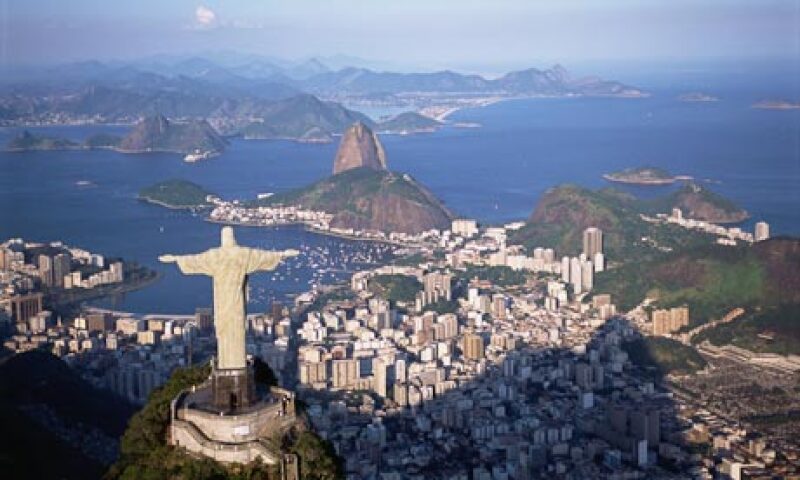
The Olympic Games start in Rio today. As usual in the build up to a big sporting event, there has been a focus in the media on the intellectual property issues at play. With sponsors shelling out big money, the International Olympic Committee goes to great length to ensure other brands do not try to benefit from the games.
“Legal bullying”?
The IOC is taking a hard line on social media. For example, it is clamping down on media companies making Olympic GIFs, as Ars Technica reports.
The US Olympic Committee has attracted attention for what some term “legal bullying”. The Guardian reports the USOC has sent warning letters to companies that sponsor athletes but don’t have a commercial relationship with the USOC or the International Olympic Committee.
One of these letters says: “Commercial entities may not post about the Trials or Games on their corporate social media accounts. This restriction includes the use of USOC’s trademarks in hashtags such as #Rio2016 or #TeamUSA.”
The Daily Caller reports that retweets of official Olympics Twitter accounts are also prohibited.
Minnesota carpet cleaning company Zerorez is suing USOC over its right to post Olympics-related tweets to its 234 followers. Its lawyer Aaron Hall said in a statement: “Zerorez, like millions of small businesses across our nation, has been silenced by the actions of the US Olympic Committee.”
He added: “This is overreaching. This is trademark bullying. I doubt Congress intended to chill the free speech of patriotic businesses sharing in the Olympic spirit.”
The Broadcast Law Blog has a good overview of the lengths the US Olympic Committee will go to protect its trade marks.
“The Olympic Committee also has an extra enforcement tool in its arsenal. In addition to the traditional protections afforded under the Lanham Act, as well as those under state and common law, some of the Olympic trademarks are protected by a special statute, designed in order to allow the USOC exclusive rights to control all commercial use of USOC trademarks, imagery and/or terminology in the United States.”
The protections cover the word OLYMPIC, the Olympic rings, the word PARALYMPIC, the Paralympic Agitos, the word PAN AMERICAN, the Pan American torch, and other words or symbols suggesting an association with the USOC, the US team or the Olympic games.
“So take extra care if you are considering using these marks, as it will be easier for the USOC to enforce a claim against you in court – the statute makes actionable any use of the word Olympic or similar terms tending to cause confusion or mistake, to deceive or to falsely suggest a connection with the USOC or any Olympic, Paralympic or Pan American Games activity,” warns the Broadcast Law Blog.
Ambush marketing
In April, we ran an article by Albert Guerra outlining how Brazil tackles ambush marketing ahead of the Olympics and what lessons were learned from the World Cup in 2014. You can read it for free here.
As Smart & Biggar outlined in a recent article, anti-ambush marketing legislation was introduced for the first time during the Sydney 2000 Olympic Games. “The 2016 Rio Olympic Games are similarly protected against ambush marketing. In preparation for the upcoming Games, Brazil has enacted specific legislation including the Olympic Act (Law 12,035/2009) to protect official sponsors from ambush marketing,” said Smart & Biggar.
“Article 8 of Brazil's Olympic Act extends protection to the use of terms and expressions that would cause undue association with the Rio 2016 Games or the Olympic Movement. This increasing trend towards protection of intellectual property and sponsorship rights is reflected in the Rio 2016 Brand Protection Guidelines.”
Rule 40
As we outlined in May, the Olympic Charter includes Rule 40, an agreement between the International Olympic Committee and athletes that establishes a "blackout period" during which the athlete’s name and image cannot be used by any non-official sponsors of the Olympics. If an athlete is found to be in breach of Rule 40, he or she can be barred from participation and/or stripped of a medal.
While Rule 40 goes a long way to protect official sponsor-brands, if enforced, it puts athletes in a precarious position. Particularly in the aftermath of the 2012 London Olympics – and controversies surrounding advertisements such as leaked photos of Michael Phelps’s appearance in Louis Vuitton advertisements – the rule has been criticized as being enforced too strictly by some local Olympic Committees and for being disadvantageous to athletes.
"[In ambush marketing matters involving] social media, we have to apply Rule 40," José Eduardo de V Pieri, an IP attorney with Barbosa, Müssnich, Aragão in Rio de Janeiro, Brazil. Pieri, told us in May. "This will be a very big challenge because social media has become a channel of marketing. So you have a famous star athlete, and he uses his social media – and he even is paid to use his social media – to market and attract media to a brand’s products. So if we have a Rule 40, how will we find a balance between what [from] the star athlete is just a regular tweet, or regular post or what is not? It’s the million dollar question."










